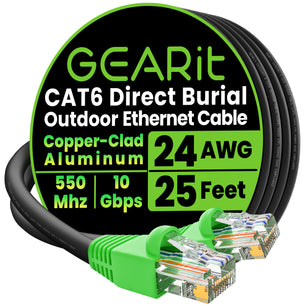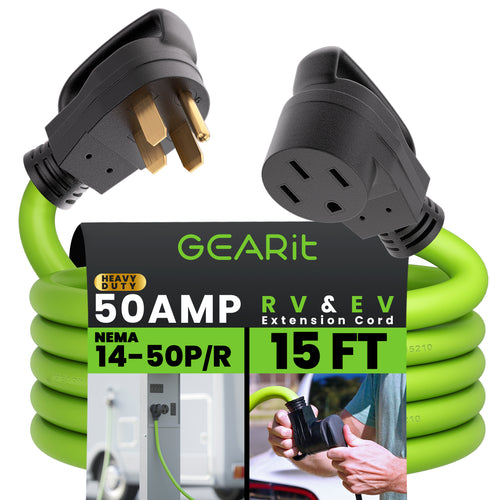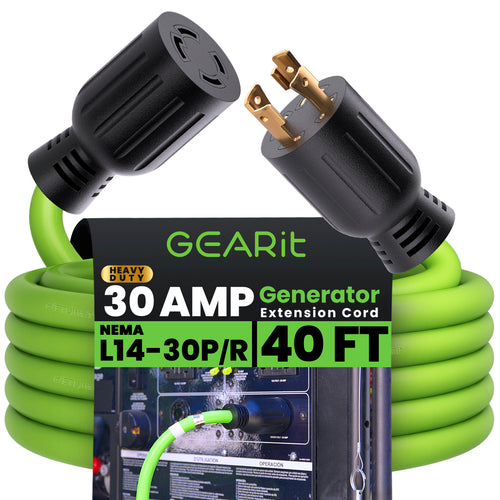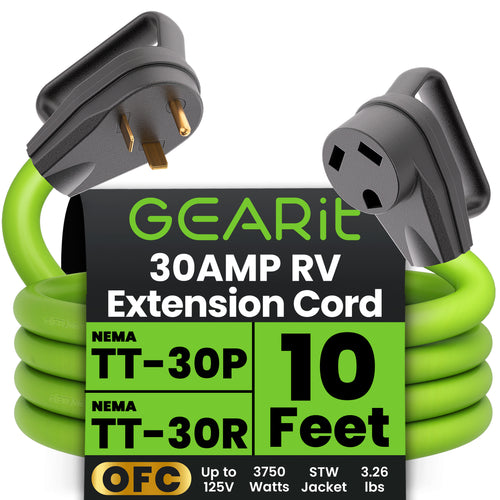When it comes to using extension cords outdoors, it’s crucial to think beyond just extending your electrical reach. Nature can be unpredictable; your outdoor cords might have to endure rain, hot temperatures, cold spells, and even snow. In this blog post, we'll explore how different weather conditions can affect your outdoor extension cords and offer some tips on how to protect them.

The Effects of Weather on Outdoor Extension Cords
- • Sun and Heat: Over time, UV rays from the sun can degrade the insulation material of the extension cord. This could lead to cracks and potentially, electrical hazards. Similarly, high temperatures can make the cord more pliable, affecting its structural integrity.
- • Rain and Moisture: Water and electricity are a bad mix. Water can corrode metal parts, and if your extension cord isn't properly sealed, moisture can seep in and lead to short circuits or even electrical fires.
- • Cold Temperatures and Snow: Just like heat, cold can also affect the insulation material of your extension cord, making it brittle and more prone to cracks. Snow accumulation can further exacerbate these issues.
- • Wind: Wind alone won't significantly damage your extension cord, but strong winds can move your extension cords around, which can lead to abrasion or them getting disconnected.
Types of Extension Cords for Outdoor Use
- • 50 Amp Extension Cord: Built to withstand the harsh outdoors, our 50 amp extension cord is your go-to choice for heavy-duty applications. With its robust construction, it offers a reliable performance, come rain or shine.
- • 30 Amp Extension Cord: The 30 amp extension cord is ideal for medium-duty tasks. It’s versatile enough to handle varying weather conditions, making it a great all-rounder for outdoor use.
- • TT30 Extension Cord: Perfect for RVs and camping, the TT30 extension cord is designed to be compact yet powerful. Its weather-resistant features make it a great choice for outdoor adventures.
How to Protect Your Outdoor Extension Cords
- • Use Outdoor-Rated Cords: Always opt for cords that are specifically designed for outdoor use. They usually come with better insulation and are made from materials that can withstand the elements.
- • Waterproofing: Consider using waterproof casings or sealants to prevent moisture from getting inside the cord.
- • Elevate the Cord: Keeping the cord off the ground can minimize the risk of water damage and wear and tear from dragging or stepping on it.
- • Inspect Regularly: Always inspect your cords for any signs of damage, especially if they are permanently kept outdoors. This can help you identify issues before they turn into major problems.
- • Unplug When Not in Use: It might sound obvious, but unplugging your extension cord when it's not in use can go a long way in prolonging its life.
Your outdoor extension cords can serve you well in various weather conditions if you take a few precautionary steps to protect them. And if you're in the market for reliable and weather-resistant extension cords, don't forget to check out our outdoor power cables.
Stay powered, come rain, shine, or snow!



























































